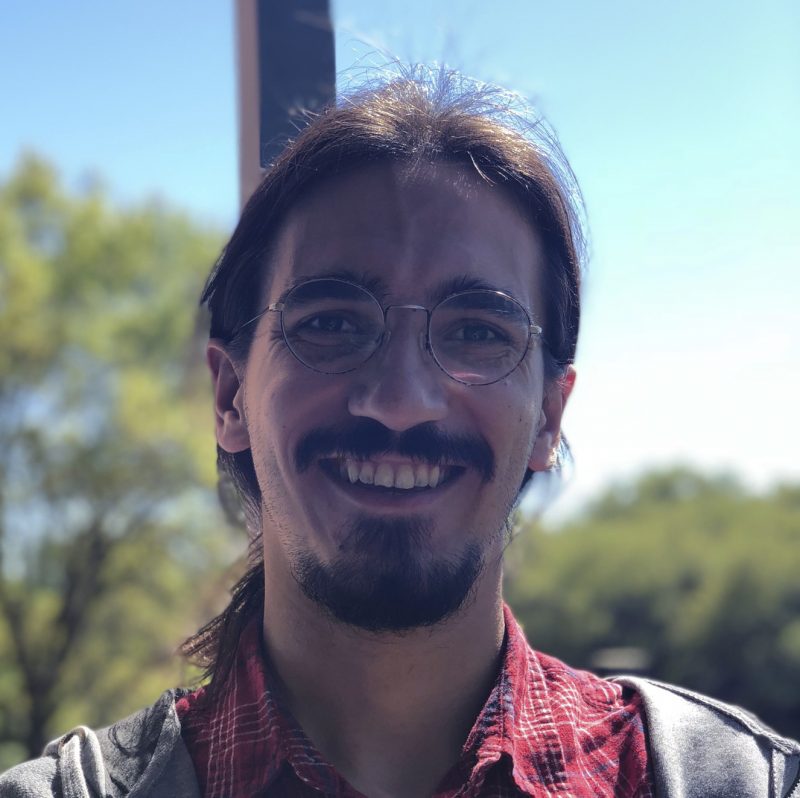“Who perfected everything which He created and began the creation of human from clay” (Qur’an, 32:7). It was not from light like the angels, not from fire like the jinn. It was from the cold, lifeless clay which creations step on.
How shocking it was for the angels to understand when Allah called this new creation His “Khulafa” (2:30), or representatives; how infuriating for Satan when he was ordered to “prostrate” (7:11). Although in its material, the human was the weakest of all, something was special with this one.
This one was taught “the names — all of them” (2:31). This one was the only bearer of “trust” (33:72). In the Prophet’s words, this one’s face was the closest to His.
Allah perfected the weakest material and made, from it, the best of all. For one more time, He said “Be!” and it was, showing His names in their best forms (3:59). We, as His representatives, are made as the subject of the whole creation, and the creation is an object of our actions, studies, feelings, looks, etc.
From the beginning, we are meant to learn His names, and the creation is meant to show us His beauty. We are the discoverers in this ocean of creation. We are the readers of “The Book of the Universe.”
As Einstein says, “Curiosity has its own reason for existing.” In Islam, that curiosity, that need to discover, takes its reason from the nature of our creation, our and only our name Khulafa. That is how our creation defines our relationship with the creation.
Besides the need to discover, we have another significant ontological need that we generally overlook. We are not only the readers of “The Book of the Universe,” but we are as well a part of it. We are not only meant to discover but also to be discovered. As we are subject to the whole creation, we are objects to each other.
These two needs — to discover and to be discovered — define our relationships with each other as brothers and sisters: a deep, sharing, and caring relationship. We are “honored as the children of Adam” (17:70) to be Khulafa to the creation and to each other.
In the Quran’s words, “O mankind, indeed We have created you from male and female and made you peoples and tribes that you may know one another” (49:13). In the words 13th-century Turkish Sufi poet Yunus Emre’s words:
Come, let’s all be met,
Let’s make this easy,
Let’s be lovers and loved ones,
The earth is never left to anyone.
Last year on Friday, March 24, on a traditional Henna Night at Trinity University, I felt the cries of the Muslim world asking for discoverers. An ever-open invitation to everyone: “Let’s all be met.”
And they were right. We need eyes to see us living a normal life. We need ears to hear us praying for the mankind’s peace, five times a day. We need arms to hug us as brothers and sisters. We need discoverers.
On that night, there were hundreds of discoverers who were willing to make an effort to get to know us, to see and appreciate our diversity, to taste our food, to listen to our music, to watch our unique dances, and to accept us as a part of one big family: “the children of Adam.”
In the end, Adam Syed, Caileen Tallant, Meghan Zirkle, Sam Vincent, Mikki Hoffman and Charlie Stein expressed their feelings in Cheb Khaled’s words:
Aisha, Aisha listen to me
Aisha, Aisha don’t go
Aisha, Aisha look at me
Aisha, Aisha answer me.
And they continued as an art piece that is weeping for the appreciation it deserves:
Keep your treasures,
Me, I’m worth more than that.
Bars are still bars even if made of gold.
I want the same rights as you
and respect for each day,
Me, I want only love.
Yes, that night was a touching cry of Muslims, and I hope it touched and will touch the hearts of many, if not all.
I hope we will free ourselves from the Satanic arrogance, come to the realization of Qur’an’s words, and put an end to all conflicts, saying that we are here so “that [we] may know one another” (49:13).






